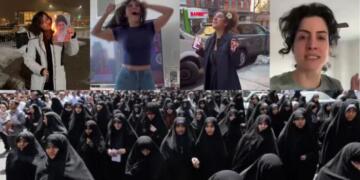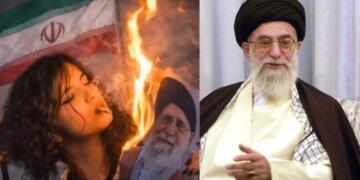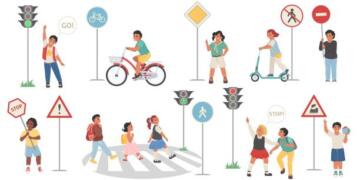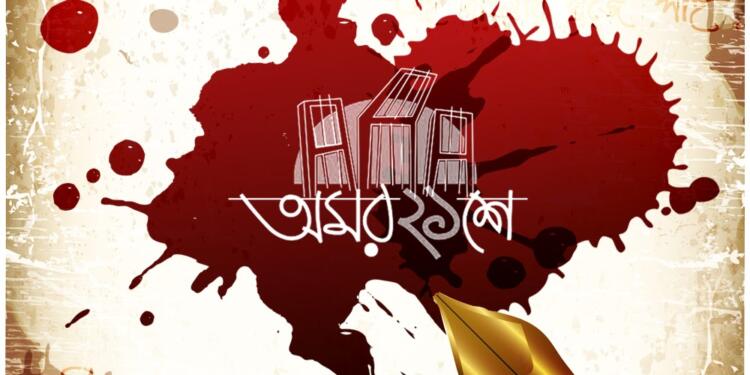Antorjatik Matribhasha Dibosh February 21
International Mother Language Day or Matribhasha Diwas or Antorjatik Matribhasha Dibosh is observed every year on February 21 to promote linguistic and cultural diversity and multilingualism around the world. International Mother Language Day was propounded by Bangladesh. The general conference of the United Nations Educational, Scientific and Cultural Organization (UNESCO) decided to celebrate February 21 as International Mother Language Day in November 1999.
The United Nations (UN) general assembly in 2002 welcomed the decision. On May 16, 2007 the United Nations General Assembly through a resolution called upon member states “to promote the preservation and protection of all languages used by peoples of the world”.
The general assembly proclaimed 2008 as the International Year of Languages, to “promote unity in diversity and international understanding, through multilingualism and multiculturalism.”
On International Mother Language Day 2021, Vice President M Venkaiah Naidu sent his wishes to the nation in different Indian languages. “My greetings on International #MotherLanguageDay. Linguistic diversity has always been one of the foundational pillars of our civilization. More than just a means of communication, our mother languages connect us with our heritage and define our socio-cultural identity,” the Vice President said on social media.
Also Read: October Quotes Collection
Antorjatik Matribhasha Dibosh History
In 1948, the then Government of Pakistan declared Urdu to be the sole national language of Pakistan, even though Bengali or Bangla was spoken by the majority of people combining East Pakistan and West Pakistan. The East Pakistan people protested since the majority of the population was from East Pakistan and they spoke their mother language, which was Bangla. They demanded Bangla to be at least one of the national languages, in addition to Urdu. The demand was raised first by Dhirendranath Datta from East Pakistan on 23 February 1948, in the constituent Assembly of Pakistan. Pakistan however, cracked down on these protests and gave way to greater sentiments against West Pakistan in Bangladesh, the then East Pakistan.
This sentiment gave birth to the International Mother Language Day or Matribhasha Diwas or Antorjatik Matribhasha Dibosh. Panchur College is very proactive in this regard and organises seminars and workshops for students to improve their overall academic experience. From time to time, the university organizes these workshops in cooperation with other universities, private institutions and vocational promotion institutes.
More than two decades ago, UNESCO promoted multilingual multilingual education in mother tongue on the occasion of International Mother tongue Day (Antorjatik Matribhasha Dibosh), the United Nations Educational, Scientific and Cultural Organisation (UNESCO). The UNESCO General Conference decided to celebrate Feb. 21 as the International Mother Language Day in November 1999.
Read More : Bursting the pseudo-secular myth: Yoga is indeed a part of Hinduism and Vedic religion.
Matribhasha Divas Celebrations
The Ministry of Information and Broadcasting tweeted: “In celebration of our multilingual heritage, the theme of the Matribhasha Diwa celebrations and events this year for International Mother – Language Day reflects the spirit of Ek Bharat Shreshtha Bharat, an India that is superior to India. The Vice President of India, M. Venkaiah Naidu, said in a tweet: “The celebration of MatriBhasha’s mother tongue ends not at the end of a promising day, but every day is celebrated as MatribHasha Diwas (Mother tongue day). With this in mind, the proclamation of the International Mother Language Day proposed by Bangladesh on 17 November 1999 at the UNESCO General Conference in Paris, declared 22 February 2000 an international day because on this day many people sacrificed their lives for their mother tongue.
The International Mother Language Day (Matribhasha Diwas) is celebrated every year on February 21 to promote the multilingualism and linguistic and cultural diversity around the world. The main ceremonial event will be organised by MHRD in New Delhi on 20 February 2020. India celebrates International Mother Language Day on 21 February.
The International Day of the Mother tongue or Matribhasha Diwas (Antorjatik Matribhasha Dibosh) is celebrated every year on February 21 to promote linguistic and cultural diversity and multilingualism across the world. Bangladesh celebrates Language Movement Day on February 21. On 21 February, a minute past midnight, the President of Bangladesh arrives at Shaheed Minar to pay homage to linguistic martyrs.
Remembering the martyrs of the language of 21 February: Abdus Salam, Rafiq Uddin Ahmed, Abul Barkat, Abdul Jabbar, Shafiur Rahman, Ahi Ullah, Abdul Awal and unnamed victims.
Read More : Nari Dibosh – Why and when does the world celebrate the Women’s Day?
Bangla bhasha andolon movement
The Bangla (bhasha andolon) language movement is a political and cultural movement in Bangladesh that focuses on the recognition of the Bengali language as the official language of Pakistan and a broad affirmation of the ethnic-national awareness of the Bengali population. Since 1952, when Bangladesh was Eastern Pakistan, a strong sense of identity led to a Bengali-speaking movement, and several people had defeated bullets and died on 21 February as martyrs. The movement continued for years after the events of February 21, 1952.
UNESCO has identified over 7,000 languages used in various countries around the world for reading, writing and speaking, and February 21 is celebrated to celebrate the linguistic diversity that exists around the world. The day is called Aantrjaatik Matribhahasha Dibas (Antorjatik Matribhasha Dibosh), which means International Mother tongue Day. It is also the day when the whole of East Pakistan is denied a foreign language as its first language.
Bengali is the official language of Bangladesh and one of 23 official languages acknowledged by the Republic of India. On 21 February 2020, the organisation celebrated multilingualism on this subject. India has always celebrated its cultural heritage under the auspices of the principles of unity and diversity, and languages are no exception.
Efforts should be made to fill the younger generation with pride and enthusiasm for their mother tongue. It is a strength to master many languages, but it is also a super strength to master one’s mother tongue without feeling ashamed.
People continue to work hard to maintain and promote Bangla, against all odds, despite the globalisation to which we have all capitulated. There is a special kind of beauty only in those who carry the language as it is and do what it does.

























